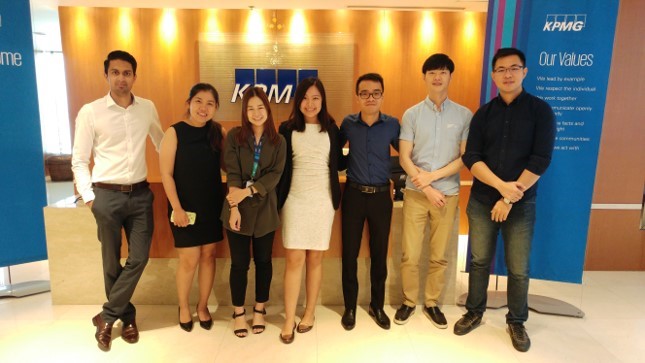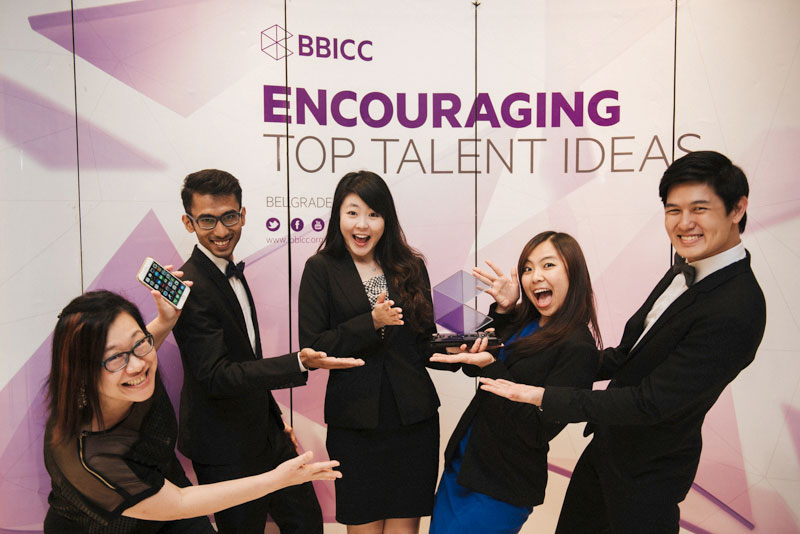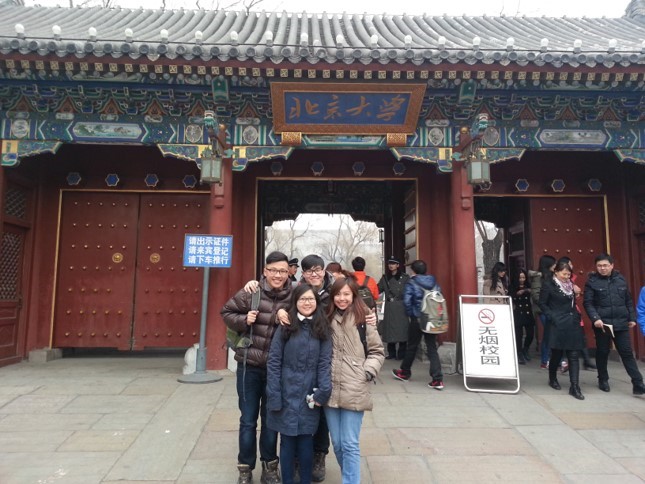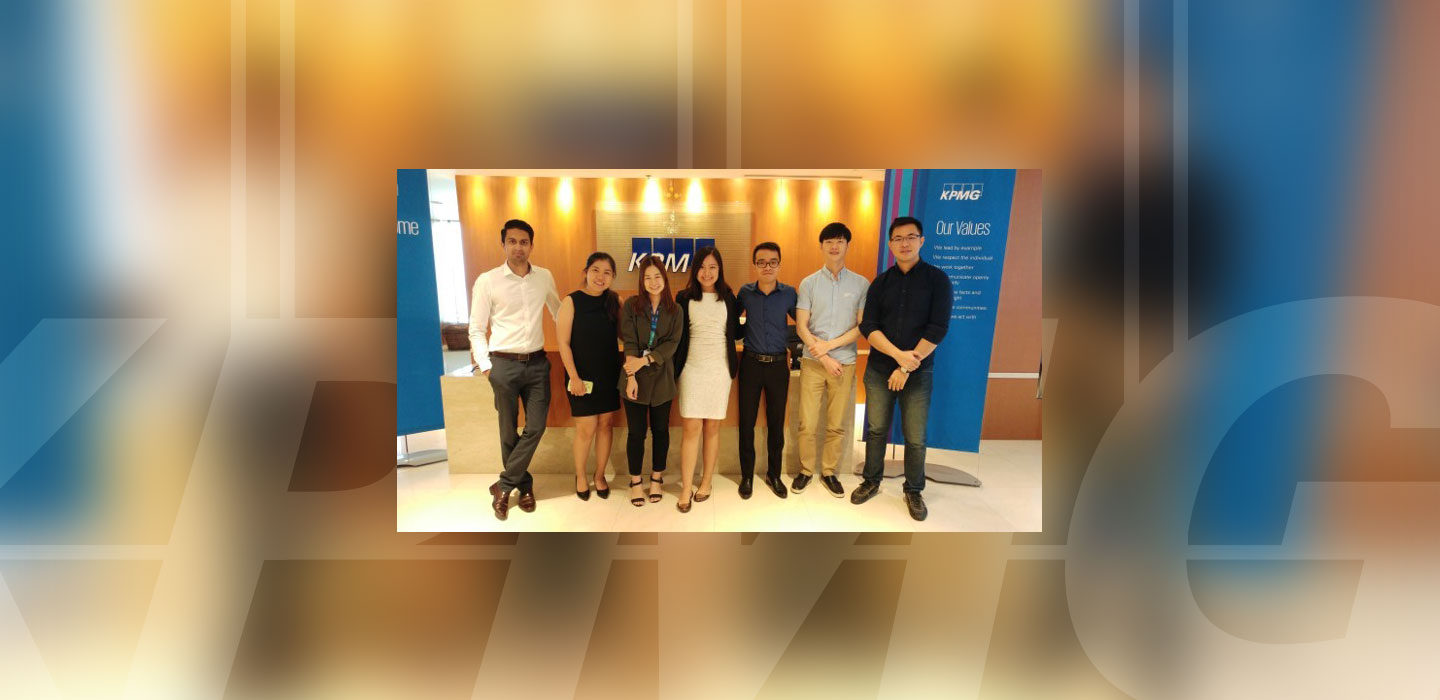Accountancy graduate Phyllis Ng (Class of 2016) is currently a second-year associate with KPMG Singapore in the Deal Advisory (Transactions Services) team, conducting financial due diligence as part of the evaluation process in mergers and acquisitions.
She also hopes to to one day start a business focused on solving social inequalities – a goal she plans to pursue once she devises a commercially viable solution for a cause she can commit to. She tells us her journey of being a NUS Business School Accounting student, to starting her career in one of Singapore’s Big Four.

Phyllis (centre) with fellow colleagues from different KPMG ASPAC offices in KPMG Bangkok for training
I was a Singapore Industry Scholarship recipient and had the privilege of various internships with KPMG to assist me in deciding what I would like to pursue full-time. Throughout my studies, I completed four internships, three of which were at KPMG working with the Deal Advisory (Mergers and Acquisitions), Audit (Financial Services) and Management Consulting (Operations) teams.
While my stints in all the departments were fruitful, I realised that I preferred the pace and demands of working in Deal Advisory. With each engagement lasting for an average of three weeks, I had a short time frame to familiarise myself with the expectations and value drivers of the client and the organisation being acquired. Although it was tough to adapt as an undergraduate intern, I relished working in such a fast-paced environment with my fellow colleagues to tackle various challenges.
I’ve always preferred working in time-pressed environments, but at the start of university life, I was not 100% sure which field I was most interested in. But after attending the various core business and accounting modules, I realised that I enjoyed working on cases that allowed me to sharpen my presentation and interview skills, using the accounting and analytical knowledge I learned in business school.
The three internships at KPMG were helpful, yet, they were no guarantee of a full-time conversion opportunity. I still had to go for interviews, not once but three times that assessed my technical knowledge and fit with the hiring team. One interview even involved a case where I had to analyse the financials of a retail company.

Phyllis (second from right) was in the winning team at the Belgrade International Case Competition 2016
It was challenging to analyse hundreds of pages of information in under half an hour, and then share a coherent and comprehensive analysis while fielding multiple questions. But thankfully, NUS Business School prepared me for this. I had represented the School in several case competitions and case workshops which really groomed and shaped me to think systematically and strategically.
If you’re looking for a place that continuously provides you with opportunities to learn and are up for a challenge, NUS Business School is the place for you. My time in school provided me with a plethora of opportunities such as representing the School in various overseas case competitions and an amazing exchange programme stint at Peking University in China.

Phyllis (right) with fellow NUS BBA exchange students at Peking University for Student Exchange Programme
To those studying in NUS Business School, these are some tips I have to make the best use of your varsity education:
1. Take modules you are genuinely interested in and not just because you are sure you can ace them
Your time as a student in NUS Business School affords you the luxury of time and options to pursue topics you are truly passionate about.
2. Work with new friends every semester
In my time in NUS Business School, I realised that many of my friends enjoyed working with the same peers they meet in their freshmen year. Why not try working with different people who work differently and learn how to better communicate with and manage others? At the workplace, you don’t have the luxury to pick who you work with. So, learn to adapt.
3. Be proactive
Opportunities present themselves only to those who are ready. While applying for internships or jobs, actively attend networking sessions to build your network.
To find our more about the NUS BBA (Acc) programme, please visit bba.nus.edu.sg.






